Sustainable fashion is so much more than just a buzzword. The concept of making fashion more conscious and less harmful to the environment has encouraged many across the globe to push boundaries and innovate for better products and processes. Closer to home, here are some of the most innovative moments sustainable fashion saw in 2021.
1. The Hemp Way
Uttarakhand and Himachal Pradesh based Chlorohemp is a start-up working towards commercialising hemp in India. While hemp is often seen by most as a type of contraband, the plant in itself has various useful qualities. Many local communities in India use hemp fibres for ropes, gunny bags and more. The use of hemp doesn’t end there. It’s safe to say each part of the plant has a different use. The seeds can be used for oil which can be consumed as well as used topically, its fibre makes for a lot more sustainable and durable alternative for commercial cotton and other fabrics. Chlorohemp works at developing fully integrated hemp processing units and developing an effective research database on Indian Hemp varieties. The start-up was also a part of Fashion for Good’s third batch of the South Asia Innovation Programme this year.
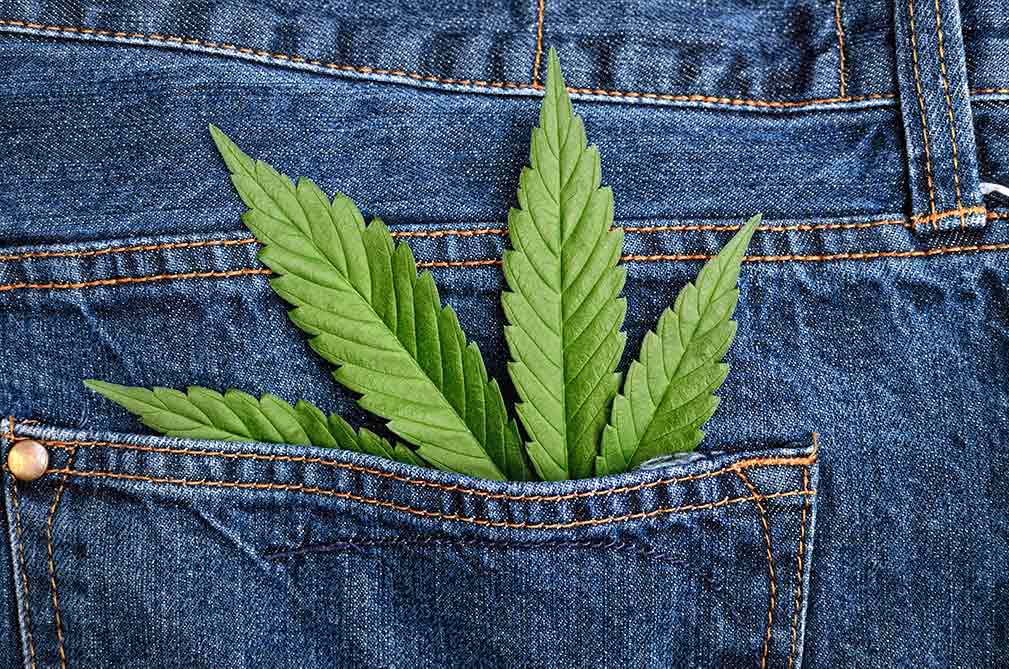
Image used for representational purposes only.
2. Flowers To Fashion
Flowers used in temples are a common phenomenon in a country like ours. However, what most of us don’t realise is the kind of pollution flower waste can cause, given that most flowers have pesticides on them and end up in water bodies. Meet the Indian brands doing their bit to manage this temple flower waste. Phool.com, a brand that already uses flower waste to make incense and other products has recently developed leather from temple flower waste. Another clothing brand, Something Sustainable, also used waste temple flowers for natural dyeing on their handwoven khadi collection.
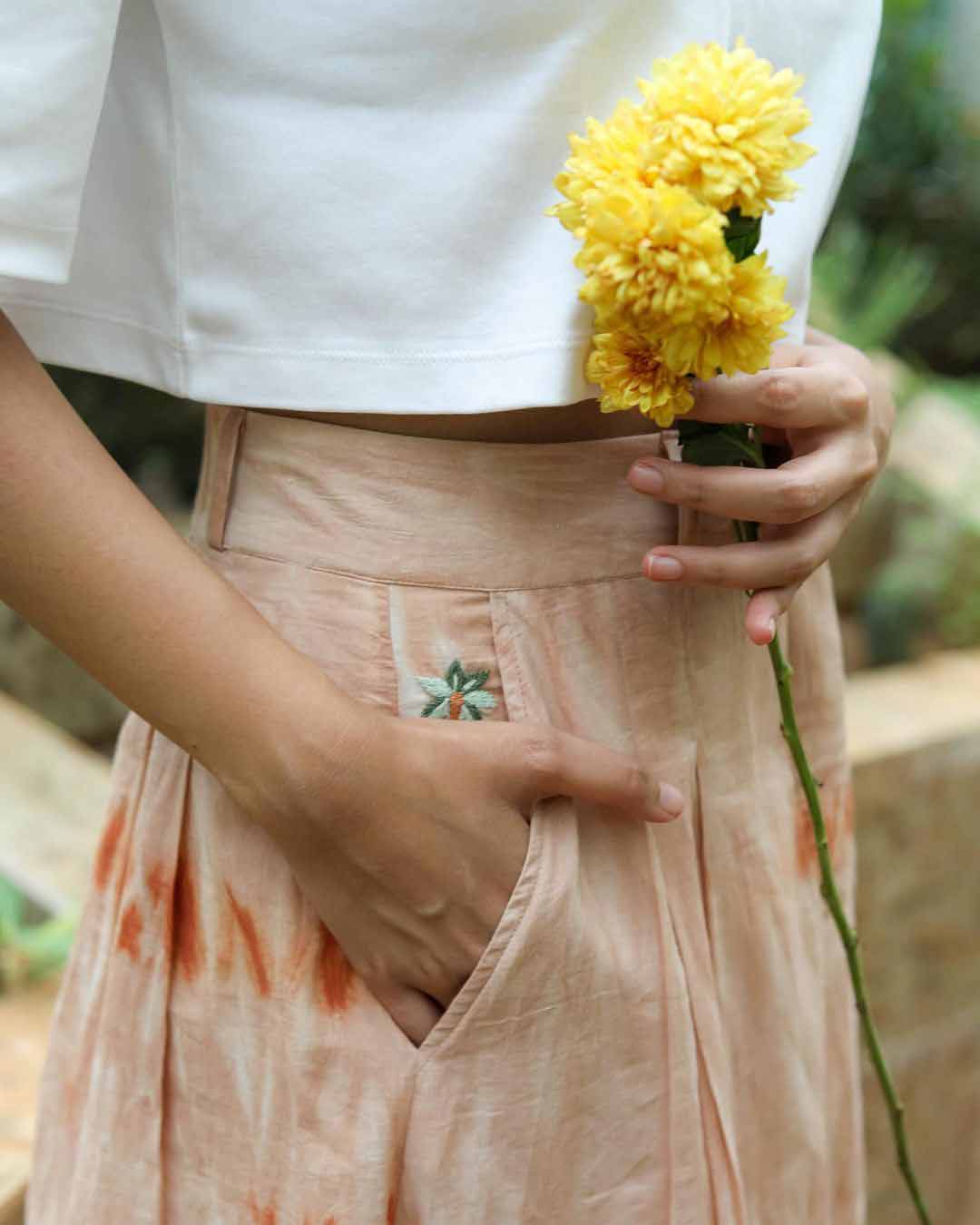
Image Source: Instagram/somethingsustainable.in
3. Circular Is The New Black
Winner of R|Elan and United Nations Environment Program’s Circular Design Challenge this year, Bandit, launched a new collection this year, made out of flex waste. The collection also featured its signature material, tarpaulin along with used canvas and car seat belts. An exciting highlight from the brand includes an upcoming sustainable jewellery line made with repurposed metals like aluminium and copper, and combined with gold and diamonds.
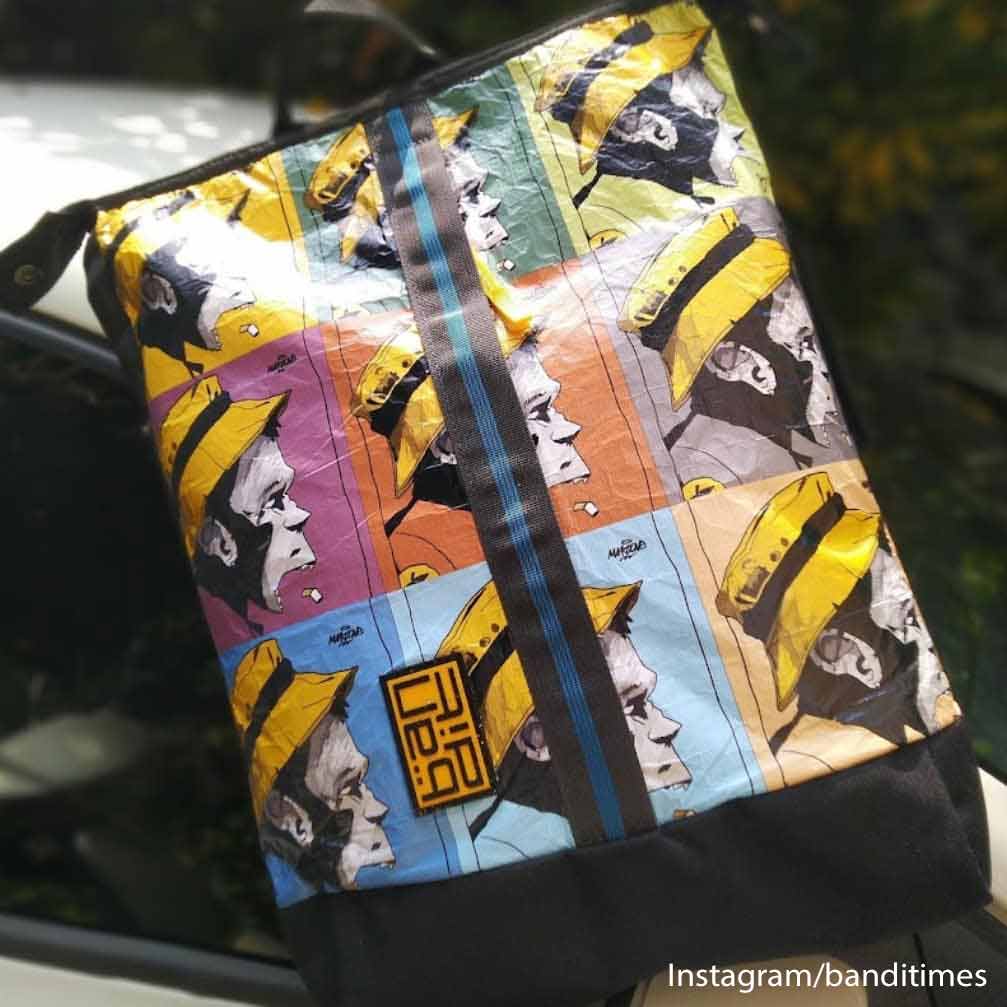
Image Source: Instagram/banditimes
4. To Dye For
Fashion without colour is almost unimaginable. Unfortunately, that means tones of toxic dyes being let into crucial waterbodies, damaging the environment, not to mention the tonnes of water used in the dyeing process. Mumbai-based Deven Supercriticals has come up with a way to dye textiles without water. The company uses supercritical fluid processing to dye fabrics, which basically entails using carbon dioxide that’s already present in the atmosphere to act as a solvent and help infuse dye onto fabrics without the use of water. This waterless dyeing could potentially save tonnes of water that’s currently being used across the globe to dye fabrics.
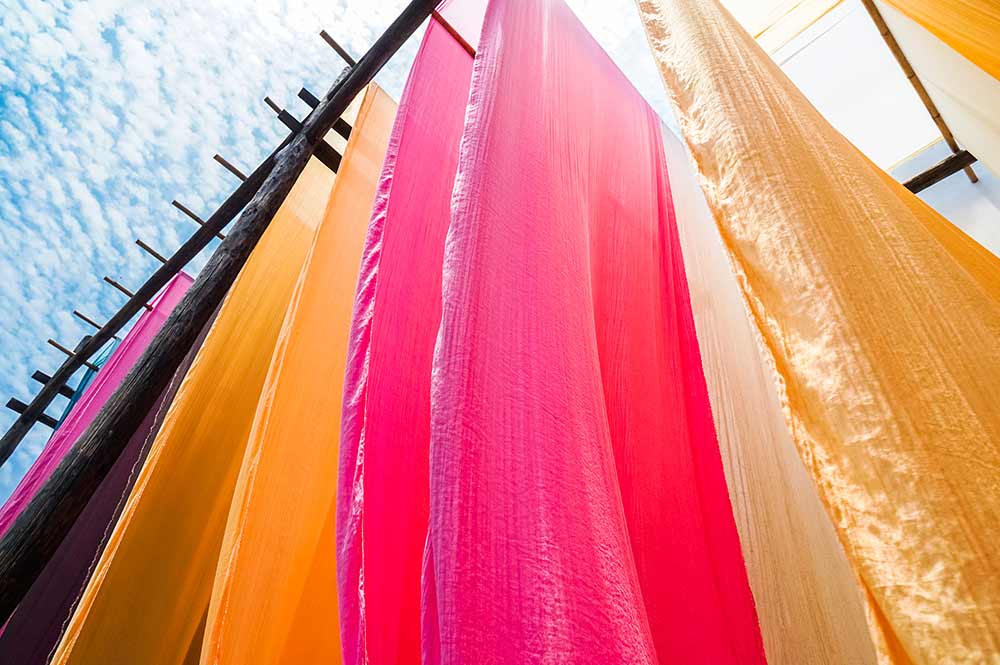
Image used for representational purposes only.
5. Recycled Fashion
This year also saw the launch of R|Elan’s new fabric- GreenGold Ecocean. Made from 100 per cent used PET bottles and other Ocean Bound Plastic (OBP), the new fabric is sustainable, high quality and can be used to make casual wear, denim, formals and womenswear. It is also available for the home textile segment under the brand name Recron GreenGold Ecocean.
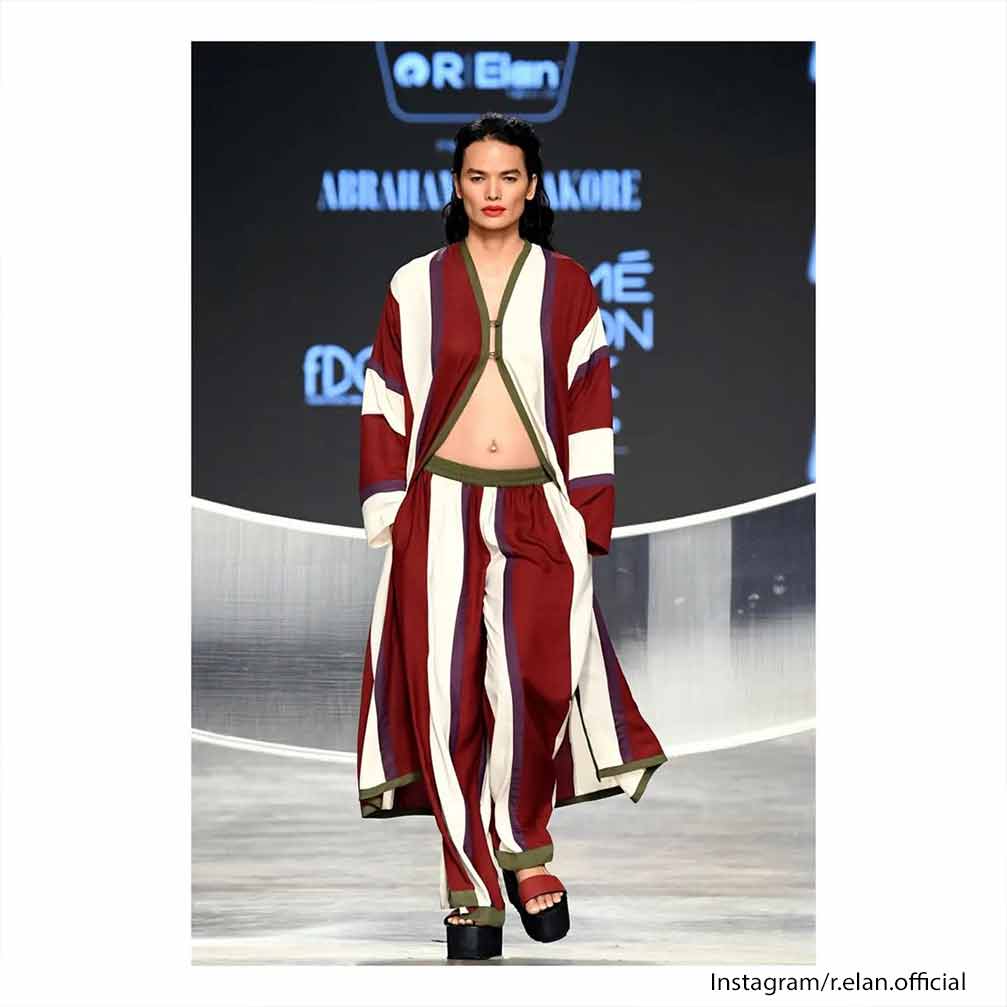
Image Source: Instagram/r.elan.official
6. Ink, Please!
Delhi and Boston based Gravity Labs has found a way to turn carbon dioxide from the atmosphere into useful materials like polymer and ink, both of which can be used to make clothes. Air-Ink, the ink they produce can be used to print on fabric as well as for art purposes. The brand’s Air-Ink is also being used by international sustainable brand Pangaia to print on their clothing.
7. Sole Sisters
Known best for its flip flops made from recycled material SuperFoam and skid-resistant ECOTREAD soles (made from recycled rubber), Solethreads recently launched a one of a kind recycling and reuse initiative, ‘The Solester REUSE Programme’. The programme aims at allowing customers to exchange their flip flops or slippers for reward points, which can be redeemed to purchase the brand’s products. The products received by the brand are used for recycling purposes and to make the brand’s eco-friendly flip-flops.
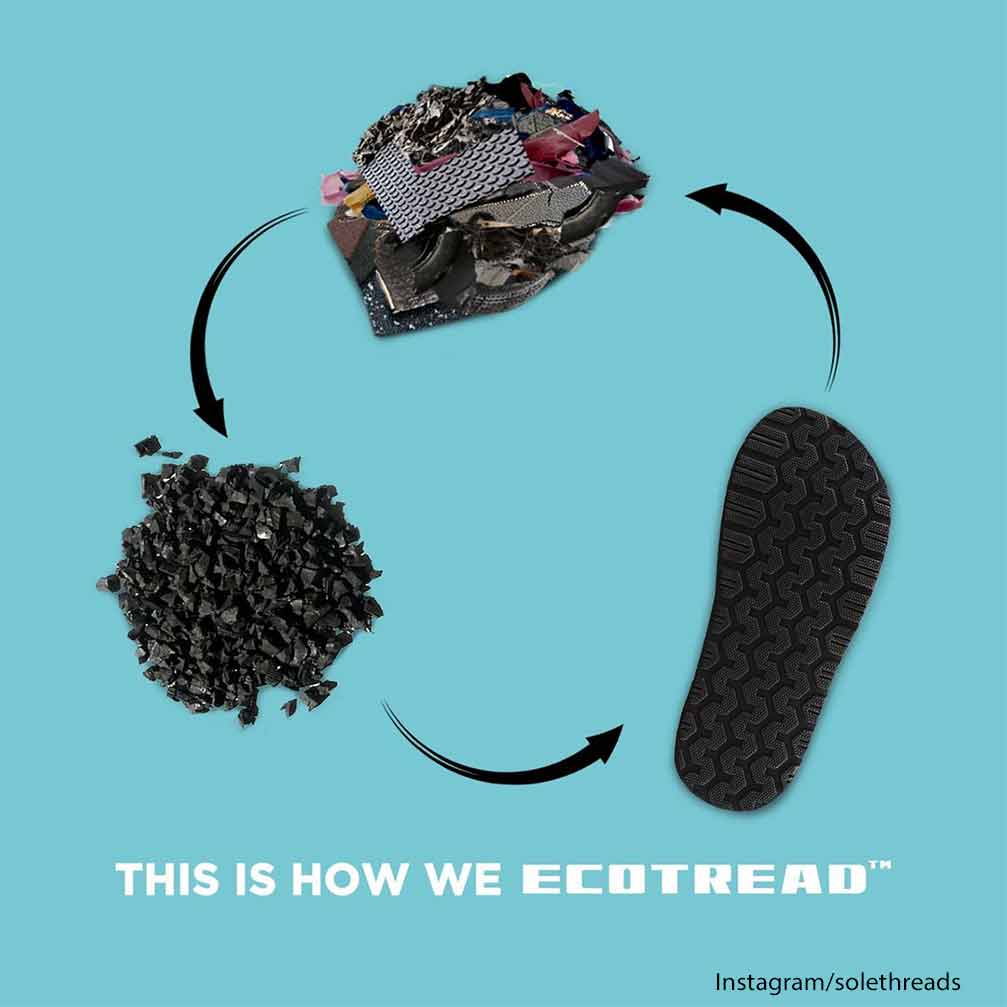
Image Source: Instagram/solethreads